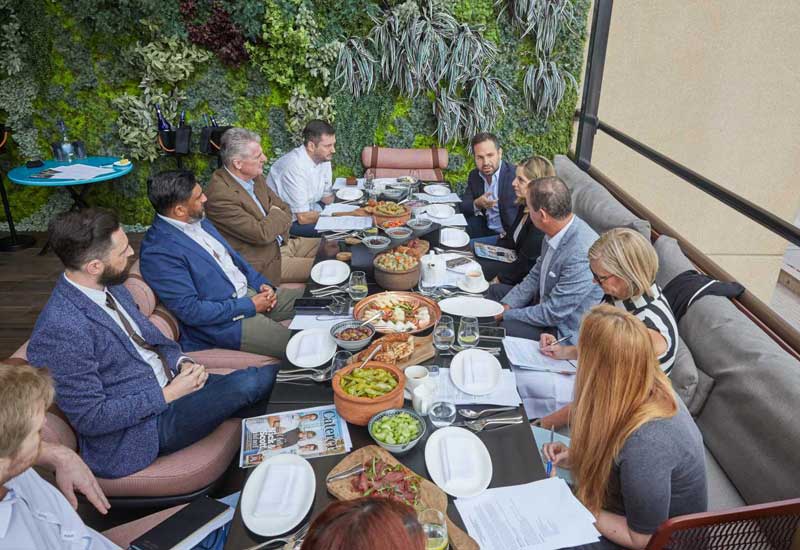Henk Bruggeman, executive director, HJA Hospitality, made the point that the inevitable result of this situation is not discussed. He pointed out: “We’re always talking about new restaurants, especially in Dubai, and so many more to come. Nobody is talking about the restaurants that are closing — we all know how many are closing, or not making any money. It’s a big challenge for our industry, given there are another 5,000 restaurants to come by 2020.”
Sanjay Murthy, shareholder, Figjam, stated: “There’s only ‘X’ amount of people and footfall isn’t growing in line with the number of outlets.”
Cost and competition
The panel agreed that consumers are keeping an eye on what they spend on luxuries in today’s climate, and are less willing to make a huge effort just to go for dinner or drinks.
As Fay Economides, executive managing director, M Management Company, put it: “Customers are more cost-conscious and people are leading busy lives — so they don’t want to going out of their way to drive several kilometres to a destination and pay high prices for an experience.”

| Advertisement |
Stefan Breg, director of F&B Europe, Africa, Middle East, Starwood Hotels & Resorts, remarked: “I think if you ask each of us now, ‘what would you invest in tomorrow — Peruvian, sushi, Korean?’ No — value.’”
The panel noted that value goes hand in hand with the increasing competition in the regional F&B arena.
While Alex Economides made the point that existing businesses welcome the growth, he commented: “Overwhelming growth is concerning investors and making them more thoughtful and more reserved with expansion in this market. If growth was steadier, there would be more appetite from investors for expansion. The increase of supply dampens hotel rates and footfall, and even non-F&B retail is affected, especially higher price retail, for the same reasons.”
Banks highlighted a need for the hospitality industry to say “let’s get real”.
She explained: “We have had 10 years of over 90% occupancy in hotels and we think that’s the norm. We all think we’re going to have a crash because the forecast for the next five years, or up to Expo 2020, is 75-80%. So, occupancy rates and standard room rates that the rest of the world is quite happy with but here, it’s seen as [signs of] a recession.
"All of a sudden, we’re realising that consumers can’t afford to spend 200 euros (US$215) a head on a meal. Again — get real because this is just how the rest of the world operates. This has just become the norm — whether you’re an independent owner and your business model is built on that norm or whether you’re an operator for a large business where that expectation every year is ‘you will maintain margins’ despite costs increasing, the reality is that at some point it is not working.
“It is almost like that reality creeping in is like coming into a perfect storm because we have had Brexit and we have problems with geo-politics in this part of the world, and the clever operators are realising that not everybody who visits the region is a Russian oligarch. There are a lot of normal people coming who can’t afford £10 ($13) a pint and can’t afford to stay in a five-star hotel.”
Article continues on next page










 Search our database of more than 2,700 industry companies
Search our database of more than 2,700 industry companies









